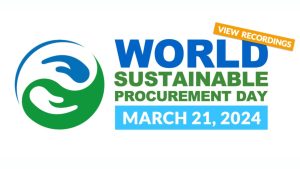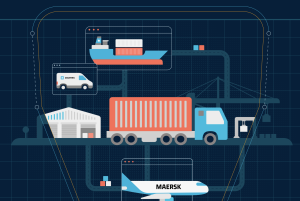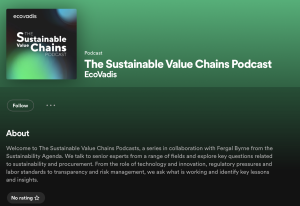 As South Africa focuses more intently on issues of sustainability, supply chains hold substantial potential to contribute to the country achieving ‘Vision 2025’, which aims to improve SA’s energy mix by having 30% of clean energy by 2025. One global logistics organisation that is successfully integrating sustainability practices throughout the supply chain is IMPERIAL Logistics, Abrie de Swardt, Logistics Marketing Director, tells SmartProcurement.
As South Africa focuses more intently on issues of sustainability, supply chains hold substantial potential to contribute to the country achieving ‘Vision 2025’, which aims to improve SA’s energy mix by having 30% of clean energy by 2025. One global logistics organisation that is successfully integrating sustainability practices throughout the supply chain is IMPERIAL Logistics, Abrie de Swardt, Logistics Marketing Director, tells SmartProcurement.
Over and above investing in ‘green’ technologies and assets, companies can unlock environmental and economic benefits by making practical changes to supply chain processes and products. Addressing the problem of carbon emission and environmental pollution not only limits carbon footprint and waste, but optimises supply chain performance.
“There is a dire need to ‘green’ logistics. Until very recently, freight transportation was a negligible consideration in company strategy with regards to environmental responsibility,” says de Swardt.
“However, current business practices such as international sourcing and quick turnaround times challenge this by extending transportation distances and minimising lead times in the supply chain. Standard modes of transportation consume fossil fuels, generate noise and emit toxic compounds.”
De Swardt emphasises that ‘green’ initiatives must be acceptable financially, environmentally and socially. “The transformation to a green supply chain is a three-fold process, i.e. becoming educated; measuring the company’s carbon footprint and identifying change levers; and embarking on business case-supported initiatives”.
Through making the right procurement decisions, working closely with customers and business partners and the intelligent application of supply chain modelling aided by the necessary tools, excessive and inessential transportation is eliminated, explains de Swardt. The result is a leaner, greener supply chain.
Companies can make a number of changes with the assistance of Logistics Service Providers (LSPs). Options for greening supply chain operations range from small process changes, such as retraining drivers, to substantial capital investments including setting up green Distribution Centres (DCs), says de Swardt.
IMPERIAL Logistics has invested in Euro 5 specification trucks, which run on low sulphur diesel, with additives that further reduce toxic emissions. Furthermore, IMPERIAL Cargo recently established a solar powered national logistics hub.
The Group has also invested in three semi-trailers and equipped one rigid unit with the ecoFridge – Nitrogen based refrigeration technology that is completely harmless to the environment. Purchased by IMPERIAL Logistics Refrigeration Services for the Woolworths dedicated fleet, it is anticipated that the use of the four ecoFridge units will result in the elimination of 596 tons of CO2 per year.
IMPERIAL Logistics recognises the importance of the different OEMs as partners in the correct selection of its vehicles as well as auxiliary equipment such as tyres. “In our experience, when a vehicle manufacturer is involved in selecting the correct vehicles and specifications for its application, the results are evident,” he says.
Early adopters of sustainability based business practices are finding that ‘green’ projects can generate savings. “The ultimate challenge, however is to find ways that ‘green’ can simultaneously reduce costs, increase revenues and improve the environment – one that South African business can take on successfully by applying its inherent innovation,” concludes de Swardt.


























